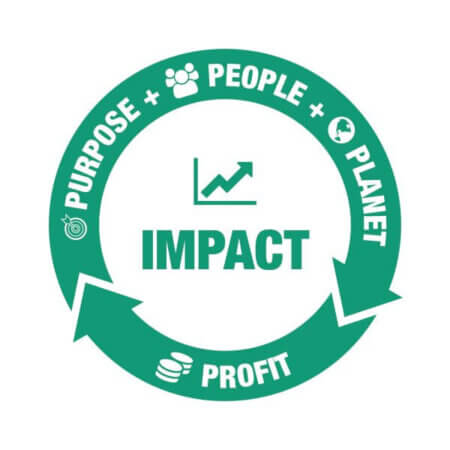
Today I am encouraging you to consider what paradigm you could smash?
First, I’ll talk about what we mean by a Paradigm, then use a recent example of a smashed paradigm, then talk about a key one I see for the future of business, which will link back to the meaning of the visual “Scale for Impact” model above, one which represents smashing of a key paradigm in business, yet in a way that can both be good for society and our planet and also be more profitable. Interested? Read on.
What is a paradigm?
- A recurring theme for me is Smashing Paradigms, so let’s talk about that first.
- As background, first this post: “What is a Paradigm?“, uses a famous research story to explain the word Paradigm. Second, this site search link will give you many posts I have written around the theme of Smashing Paradigms.
- Simply put, a Paradigm is a belief we hold to be true but we can’t remember why, or perhaps we simply choose not to question it. In business, I talk about the six most dangerous words in business being: “We’ve always done it this way“.
How Germany smashed the paradigm of expensive rail travel this summer
- Every month I take a less than two hour train journey to see a client. The flexible fare for this is over £350. Even an advance purchase ticket is well over £100 return, and the trains (other than absolute peak time trains) are never full.
- We live in a time of climate crisis, yet UK rail fares seem designed to drive people to use their cars, particularly when travelling in couples, families or groups.
- How about this headline then?: “Germany eases cost of living crisis with €9 a month public transport ticket“. Yes, you read this correctly, €9 per month for unlimited rail travel. The cost of this will be funded by central government and is in response to the energy crisis, a different approach to supporting households with the cost of living at this time, and one that (unlike the UK approach of subsidising all households energy bills) will also drive some behaviour change out of cars and onto trains.
Optimising vs Maximising Investment Returns
- In the FT this week is this piece: “How ESG investing came to a reckoning” (free to read, not behind their paywall), which notes: “ESG’s critics say some companies and investors are using the loosely defined term to “greenwash,” or make unrealistic or misleading claims, especially about their environmental credentials.”
- This is an excellent long read, and at the same time it feels to me that the investment community from top to bottom is still trying to “square the circle” and meet ESG criteria while still maximising investor returns.
- In short, this is a paradigm to be smashed. Maximising investment returns has, over recent decades, become a short-term game, with quarterly earnings call often focussed largely on “what was our profit this quarter, what are our operating margins etc”, rather than longer term and more strategic moves by companies.
- In April I was interviewed by Octo Members (a thriving and vibrant community of investment professionals in and focussed on the UK markets) on the topic of ESG (link here). In discussion with one of their founders, Lee Robertson (who later appeared on #WhatComesNextLive as a guest, so you can learn more about Octo and his thoughts here)
- One question Lee asked me was whether I thought ESG was here to stay, and then how long until we moved past the greenwashing phase to where it really does authentically drive decision making. My answer was in the range of 3-5 years and was driven by many conversations with CEOs and other senior business leaders internationally who I see making the long term moves in this direction.
- Now, not all CEOs and companies are authentically moving in that direction, but those who are have smashed through the paradigm of Maximising profit (short-term thinking) to Optimising profit (long-term thinking).
- Oh, and companies that Optimise for ESG are (am I am seeing this empirically in case after case) seeing higher profits over time as they focus on Environment, Social and Governance themes. Put another way, the S and G here are about Trust, Ethics, People, Society. Those companies are therefore increasingly attracting people to work for them and buy from them over those who simply focus on money for the short-term. Ah, and the picture above is the model I developed for this and that I work with leaders on, something I call the Scale for Impact Model, the thinking around which is in the core post: “Leading from Purpose“.
